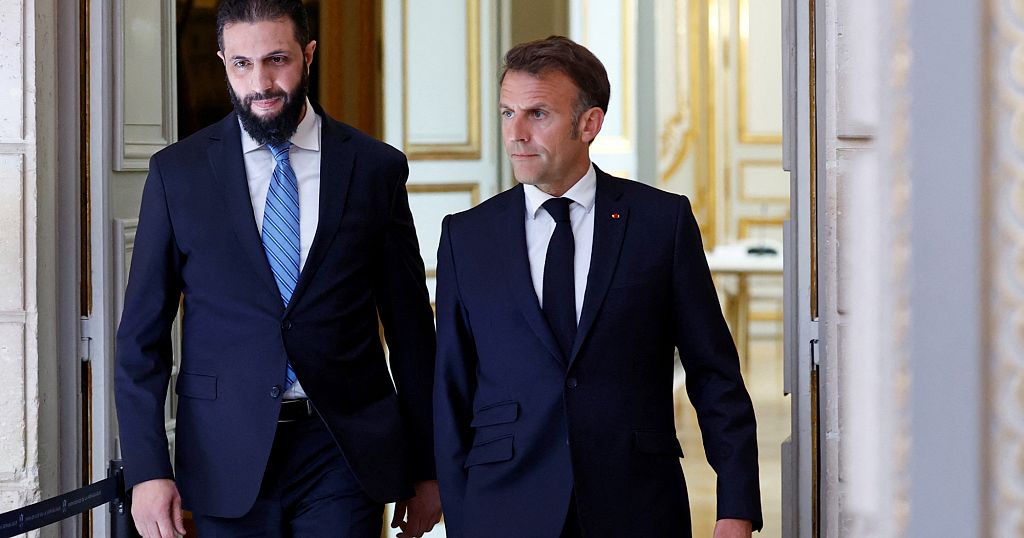Africa
Syria holds indirect talks with Israel to prevent escalation

Syria’s interim President Ahmad al-Sharaa said Wednesday that his country is holding indirect talks with Israel to prevent recent hostilities from getting out of control.
He spoke on his first visit to Europe since taking office in January, and as he seeks to broaden ties to Western countries.
Israel carried out a series of airstrikes on parts of Syria last week, saying it aims to protect the country’s Druze minority from coming under attack by pro-government gunmen.
Speaking to reporters in Paris, al-Sharaa said, ″Regarding negotiations with Israel, there are indirect talks through mediators to calm down the situation so that they don’t get out of control.″
He did not say who the mediators are.
There was no immediate public comment from Israel.
Israel has its own Druze community and officials have said they would protect the Druze of Syria and warned Islamic militant groups from entering predominantly Druze areas.
Al-Sharaa met earlier Wednesday with French President Emmanuel Macron, who said he would push the EU and U.S. to lift sanctions on Syria to boost its economy.
Macron also called for continued U.S. and international military presence in Syria to fight terrorist groups threatening security in the Mideast and Europe.
Al-Sharaa took power after his Islamist group, Hayat Tahrir al-Sham (HTS), led an offensive that toppled former President Bashar Assad in December.
Assad, a member of Syria’s Alawite minority, ruled for more than two decades.
The Syrian leader’s visit to Paris comes a week after clashes between forces loyal to al-Sharaa and fighters from the minority Druze sect that left nearly 100 people dead.
This followed earlier violence in Syria’s coastal region between Sunni gunmen and members of the minority Alawite sect, which left more than 1,000 people dead, many of them Alawite civilians killed in revenge attacks.
Religious minorities in Syria, including Alawites, Christians and Druze, fear persecution under the predominantly Sunni Muslim-led government.
Al-Sharaa has repeatedly pledged that all Syrians will be treated equally regardless of religion or ethnicity.
The 14-year conflict has killed nearly half a million people and displaced millions.
Syria’s infrastructure lies in ruins, and international sanctions remain a major barrier to reconstruction.
The visit to Paris is being closely watched as a potential test of Europe’s willingness to engage with Syria’s new leadership.
The European Union has begun easing sanctions, suspending measures targeting Syria’s oil, gas and electricity sectors, as well as transport, including aviation, and banking restrictions.
The EU said that it would monitor developments in Syria to see whether other economic sanctions could be lifted, but its 27 member states are divided on whether to go further.
